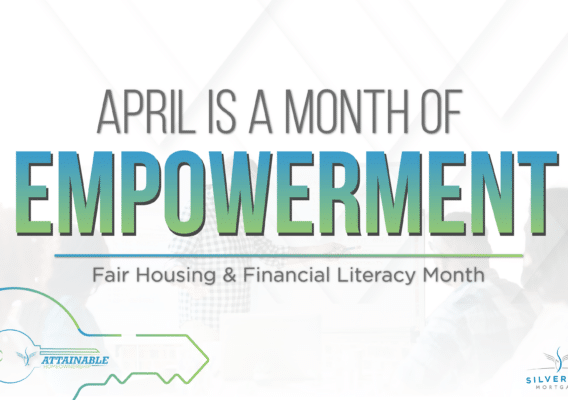You’re a seasoned homeowner who knows about mortgage insurance, escrow, and property value. That’s awesome! Now you’ve been wondering about refinancing and whether it’s right for you. You’re not alone. Understanding the benefits of refinancing your mortgage can seem overwhelming, but that’s what we’re here for. In this post, we’ll cover several things you need to know to make the best possible decision for your individual circumstances.
Refinancing in a Nutshell
When you refinance your home, you’re basically getting a fresh loan that replaces your existing one. This new loan will have a new interest rate, term, and amount borrowed. It’s important to keep in mind that when you choose to refinance, you’re acquiring a new loan. This means being subject to a similar process as your first mortgage. Your credit score, employment history, and financials will all be taken into consideration. You’ll also be responsible for an appraisal as well as closing costs and lender fees. However, fewer documents are required to refinance than to purchase, and closing is often faster. Lastly, it’s important to recognize that refinancing isn’t guaranteed to save you money. Be sure to do your research and have a firm understanding of what you hope to get out of a refinance transaction.
Reasons to Refinance
People choose to refinance for many different reasons. The important thing is to understand how refinancing works and what’s involved in the process. In the end, refinancing a mortgage can be very useful and cost saving.
Lower Interest Rates
Interest rates fluctuate for many different reasons including changes in both the U.S. economy and the global market. If mortgage interest rates fall, you may be able to secure that lower rate which could lead to big savings. A general rule of thumb for whether refinancing is worth it is when rates fall one to two percent below your current rate. While the difference may not seem like a lot, it has the potential to save YOU hundreds of dollars a month. Not only can reducing your interest rate save you money but it can also increase how fast you’re able to build equity in your home. For many, this is the biggest reason to refinance their mortgage.
Shorter Loan Term
Another benefit to refinancing may be the ability to shorten the length of your loan term without making drastic changes to what you’re already paying. Cutting your loan down from a 30-year fixed-rate mortgage to a 15-year fixed-rate mortgage is a huge deal that may be achievable with only minimal hikes in your monthly payments. This may also mean putting equity into your home faster.
Convert Loan (Adjustable-Rate or Fixed-Rate Mortgage)
It’s not uncommon to get an adjustable-rate mortgage (ARM) for the immediate savings. That’s because with this type of mortgage the interest rate that is applied to the outstanding balance varies throughout the life of the loan. Therefore, while the initial interest rate can be fixed for an introductory period, it resets periodically in relation to an index interest rate specified in the loan note. As the rate increases over time it can surpass fixed-rate mortgage rates. Refinancing to convert your ARM to a fixed-rate can both lower your interest rate and eliminate future hikes. On the flip side, converting to an adjustable-rate mortgage may lower your monthly payments. This could be a great option if you’re not planning on staying in your home for more than a few years; therefore, you may not experience a future spike in rates.
Utilize Equity
Tapping into the substantial amount of equity in your home can be a great reason to refinance in order to cash some out. If you’ve been wanting to renovate, pay off debt, or just find yourself in need of extra money, refinancing may be the lowest-cost means to making it happen. With the high annual percentage rates associated with credit cards, and the less-than-ideal terms that come along with many personal loans, refinancing may be the cheapest way to access a large amount of money without tacking on huge interest.
Consolidate Debt
If you’ve found yourself straddled with a lot of high-interest debt, it may be worth consolidating it into a new mortgage. In addition to the possibility of acquiring a lower fixed interest rate, you’ll be able to bundle all your debt into a single monthly payment. If you itemize and consolidate your debt into a mortgage loan, it might be eligible for tax deductions for the interest that is paid, which is something that isn’t available for credit card and auto loan debt. This can also be a good way to help your credit score if you make consistent and on-time payments. A lower interest rate through refinancing also means that you’ll be paying less every month than you would if you continued to pay off the debt separately. Be sure that you can make your new mortgage payments on time, however, because consolidating unsecured debt, such as credit card debt, into secured debt–debt secured by your home–means that if you do not pay, you could lose your home.
Is Now the Right Time?
The first step in deciding on whether refinancing your mortgage is the right move is figuring out your reason for doing so. Maybe you’re ready to make renovations or your interest rate is about to go up. Perhaps your credit and financial situation are better than when you acquired your original loan, and you can get better terms this time around. Whatever the reason, having a plan as you navigate the refinancing process will keep you focused and motivated. Next, take a realistic look at your current finances. If your credit is worse than when you got your first mortgage loan, refinancing may not save you money.
Something else to consider before going down the road of refinancing is the fact that, just as with your first home loan, you’ll have to qualify. Lenders will look at your income, credit standing, debt obligations, and the equity that is in your home. You’ll once again have to show that you can take on the loan. There are also unavoidable costs involved which tend to scare people away from the idea entirely. For example, you’ll be expected to cover closing costs and lender fees usually totaling several thousand dollars. While putting up that much cash can seem daunting, the long- term benefits could very well be worth it. The key is doing your research, crunching the numbers, and feeling confident in your decision.
Ok, you’ve got it all figured out and it turns out that refinancing your home loan is something you’d like to pursue, and now it’s time to contact a qualified lender. The folks at Silverton Mortgage will be more than happy to answer any questions that you may have about the refinancing process. Feel free to shop around and compare what each lender has to offer. Whoever you choose to help you with this next chapter of your life, rest easy knowing that you’re utilizing the benefits of being a homeowner.
The bottom line is that things change and the home loan that was perfect for you in the past may not be as ideal today. Through refinancing, you’re able to take stock of your current mortgage and make the adjustments that are best for you today. Whether your end goal is to get a lower mortgage rate, access your home’s equity, or pay your loan off faster – it may be time to consider refinancing.
You Might Also Like

Navigating the Mortgage Maze: The Mortgage Process Simplified

April: The Month of Empowerment

